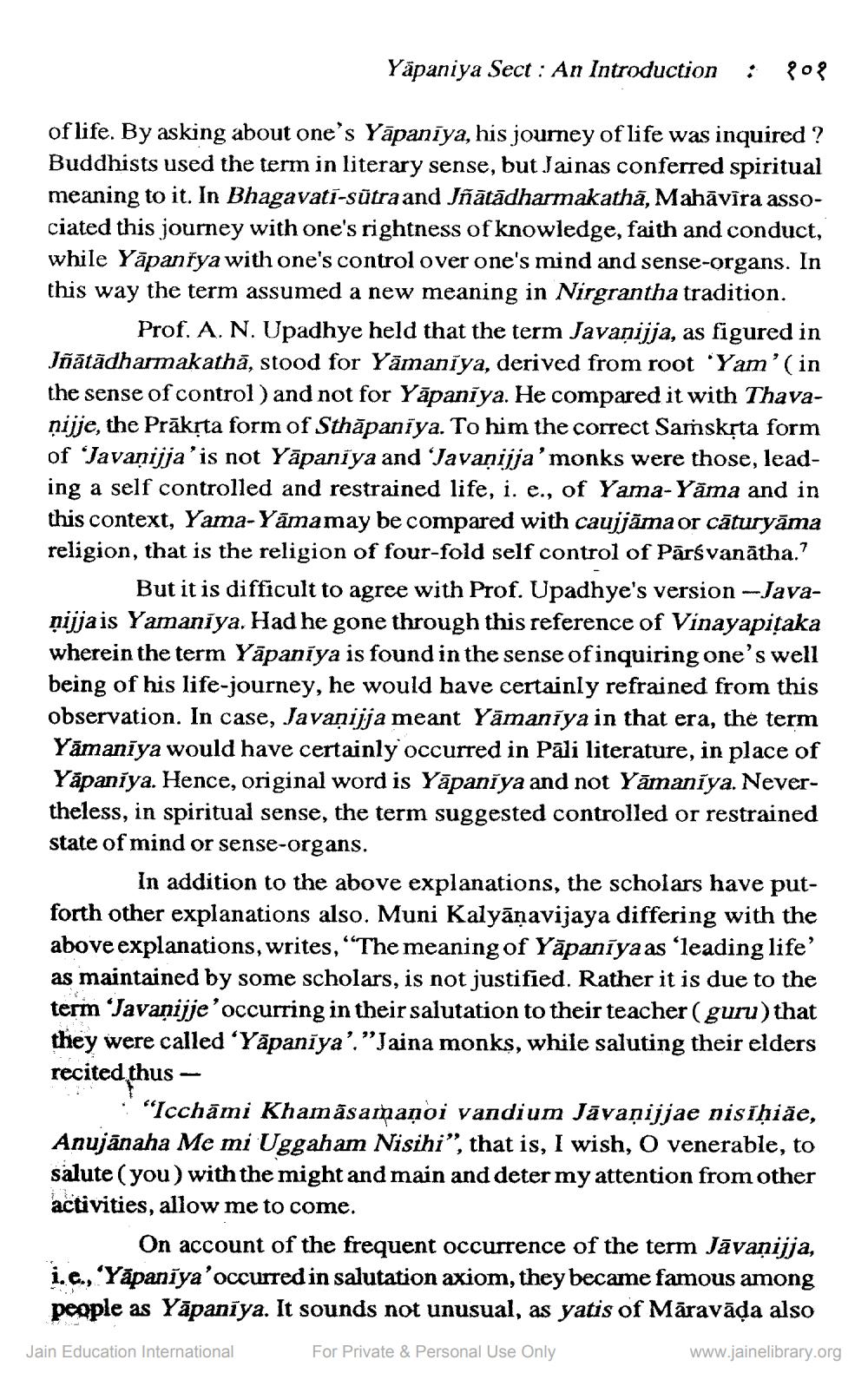________________
Yāpaniya Sect: An Introduction
: 808
of life. By asking about one's Yāpaniya, his journey of life was inquired ? Buddhists used the term in literary sense, but Jainas conferred spiritual meaning to it. In Bhagavati-sūtra and Jñātādharmakathā, Mahāvīra associated this journey with one's rightness of knowledge, faith and conduct, while Yāpaniya with one's control over one's mind and sense-organs. In this way the term assumed a new meaning in Nirgrantha tradition.
Prof. A. N. Upadhye held that the term Javanijja, as figured in Jñātādharmakathā, stood for Yamanīya, derived from root ‘Yam'(in the sense of control) and not for Yāpaniya. He compared it with Thavanijje, the Prākặta form of Sthăpaniya. To him the correct Samskrta form of Javanijja'is not Yāpaniya and Javanijja'monks were those, leading a self controlled and restrained life, i. e., of Yama-Yāma and in this context, Yama-Yamamay be compared with caujjama or cāturyāma religion, that is the religion of four-fold self control of Pārsvanātha.?
But it is difficult to agree with Prof. Upadhye's version -- Javanijjais Yamaniya. Had he gone through this reference of Vinayapitaka wherein the term Yāpaniya is found in the sense ofinquiring one's well being of his life-journey, he would have certainly refrained from this observation. In case, Javanijja meant Yāmanīya in that era, the term Yamanīya would have certainly occurred in Pāli literature, in place of Yăpaniya. Hence, original word is Yāpaniya and not Yāmaniya. Nevertheless, in spiritual sense, the term suggested controlled or restrained state of mind or sense-organs.
In addition to the above explanations, the scholars have putforth other explanations also. Muni Kalyāņavijaya differing with the above explanations, writes, “The meaning of Yāpanīya as 'leading life' as maintained by some scholars, is not justified. Rather it is due to the term ‘Javanijje'occurring in their salutation to their teacher (guru) that they were called 'Yăpaniya'.”Jaina monks, while saluting their elders recited thus -
"Icchami Khamāsamanoi vandium Jāvanijjae nisihiäe, Anujānaha Me mi Uggaham Nisihi”, that is, I wish, O venerable, to salute (you) with the might and main and deter my attention from other activities, allow me to come.
On account of the frequent occurrence of the term Jāvanijja, i.e., 'Yăpaniya'occurred in salutation axiom, they became famous among people as Yāpaniya. It sounds not unusual, as yatis of Māravāda also
Jain Education International
For Private & Personal Use Only
www.jainelibrary.org




